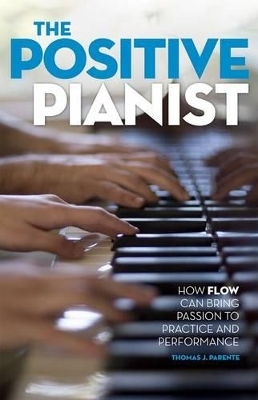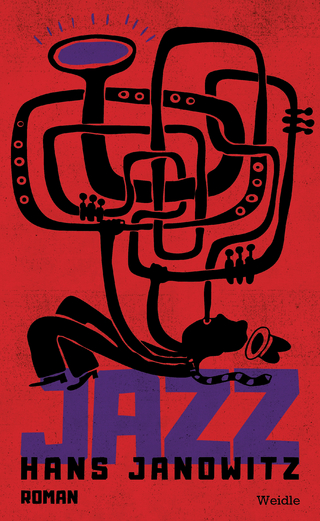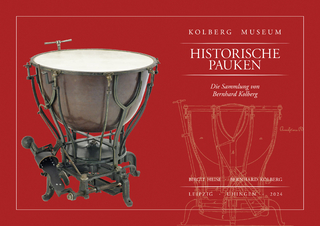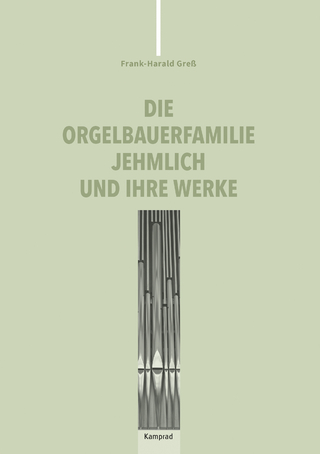
The Positive Pianist
How Flow Can Bring Passion to Practice and Performance
Seiten
2015
Oxford University Press Inc (Verlag)
978-0-19-931660-1 (ISBN)
Oxford University Press Inc (Verlag)
978-0-19-931660-1 (ISBN)
In The Positive Pianist: How Flow Can Bring Passion to Practice and Performance, author Thomas J. Parente applies the concept of flow to piano playing in order to demonstrate how student musicians can experience enjoyment and confidence from succeeding at something that challenges them to an engaging level.
In The Positive Pianist: How Flow Can Bring Passion to Practice and Performance, author Thomas J. Parente applies the concept of flow to the practice of piano playing, demonstrating how student musicians can experience enjoyment and confidence from succeeding at something that challenges them to an engaging level. By using Mihaly Csikszentmihalyi's theory of flow to musical performance, Parente shows that linking productivity and enjoyment in piano playing has a positive impact on students, motivating them to practice more in order to experience flow again; this creates optimal learning conditions for piano practicing. As the chapters progress, Parente shows students how to evaluate their own progress and offers teachers the tools to impart on their students an optimal practice method: one informed by flow. Parente argues for an objective, goal-oriented backdrop that will lead piano students to achieve greater confidence, accuracy, and musicality. The Positive Pianist draws on the author's forty years of teaching experience and research to show piano students and their teachers how to develop a productive, focused mental state when practicing the piano.
In The Positive Pianist: How Flow Can Bring Passion to Practice and Performance, author Thomas J. Parente applies the concept of flow to the practice of piano playing, demonstrating how student musicians can experience enjoyment and confidence from succeeding at something that challenges them to an engaging level. By using Mihaly Csikszentmihalyi's theory of flow to musical performance, Parente shows that linking productivity and enjoyment in piano playing has a positive impact on students, motivating them to practice more in order to experience flow again; this creates optimal learning conditions for piano practicing. As the chapters progress, Parente shows students how to evaluate their own progress and offers teachers the tools to impart on their students an optimal practice method: one informed by flow. Parente argues for an objective, goal-oriented backdrop that will lead piano students to achieve greater confidence, accuracy, and musicality. The Positive Pianist draws on the author's forty years of teaching experience and research to show piano students and their teachers how to develop a productive, focused mental state when practicing the piano.
Dr. Thomas J. Parente is an Associate Professor of Piano at Westminster Choir College of Rider University, and maintains an active studio of private piano students. A frequent clinician, he has presented workshops, courses, and clinics both nationally and internationally.
Contents ; Chapter 1. Loving What You Do, Doing What You Love ; Chapter 2. Flow Experience ; Chapter 3. Building Skills ; Chapter 4. Combining Flow and Skills ; Chapter 5. Learning a Simple Piece ; Chapter 6. Learning a More Complex Piece ; Chapter 7. Developing the Confidence to Perform ; Chapter 8. Teaching to Flow ; References ; Index
| Erscheint lt. Verlag | 14.5.2015 |
|---|---|
| Verlagsort | New York |
| Sprache | englisch |
| Maße | 155 x 231 mm |
| Gewicht | 249 g |
| Themenwelt | Kunst / Musik / Theater ► Musik ► Instrumentenkunde |
| ISBN-10 | 0-19-931660-0 / 0199316600 |
| ISBN-13 | 978-0-19-931660-1 / 9780199316601 |
| Zustand | Neuware |
| Haben Sie eine Frage zum Produkt? |
Mehr entdecken
aus dem Bereich
aus dem Bereich
Roman
Buch | Hardcover (2024)
Wallstein Erfolgstitel - Belletristik und Sachbuch (Verlag)
20,00 €
die Sammlung von Bernhard Kolberg
Buch | Hardcover (2024)
E Reinhold (Verlag)
39,00 €


